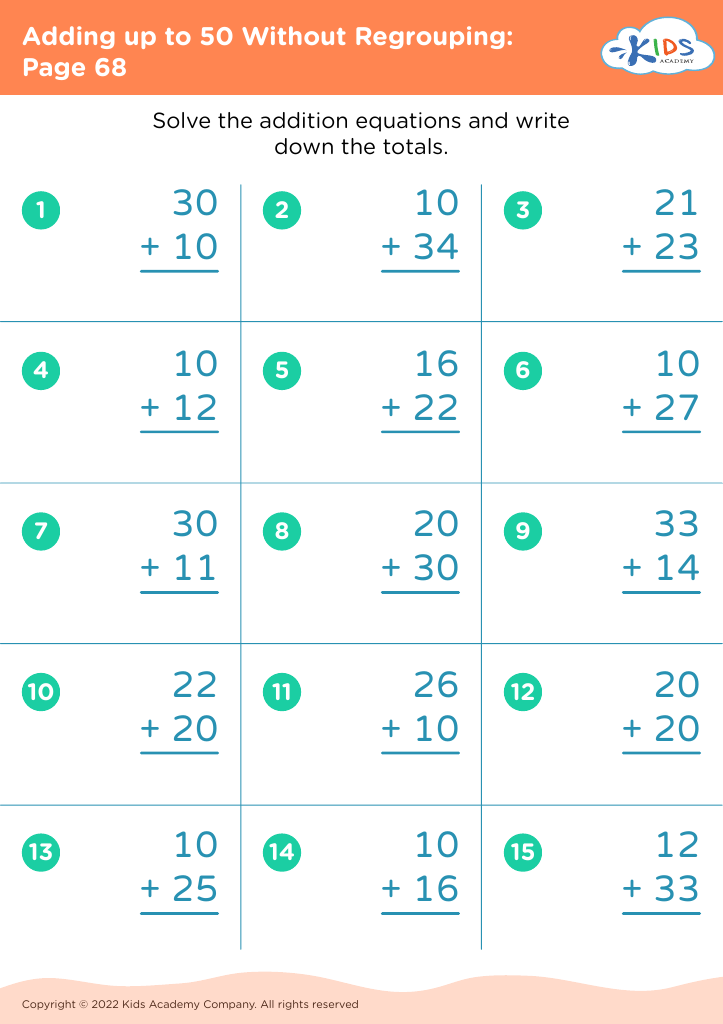Developing observation skills Worksheets for Ages 3-9
9 filtered results
-
From - To
Unlock your child's potential with our specially designed Developing Observation Skills Worksheets for ages 3-9. Created by education experts, these engaging activities foster keen observational abilities through fun puzzles, spot-the-difference exercises, and interactive tasks. Watch as young learners sharpen their focus, attention to detail, and critical thinking skills, all while enjoying each moment of learning. Ideal for both classroom settings and at-home enrichment, our worksheets cater to various developmental stages, ensuring age-appropriate challenges. Equip your child with the foundational observational skills they need today—explore our collection and see the difference firsthand!


Sink or Float Printable
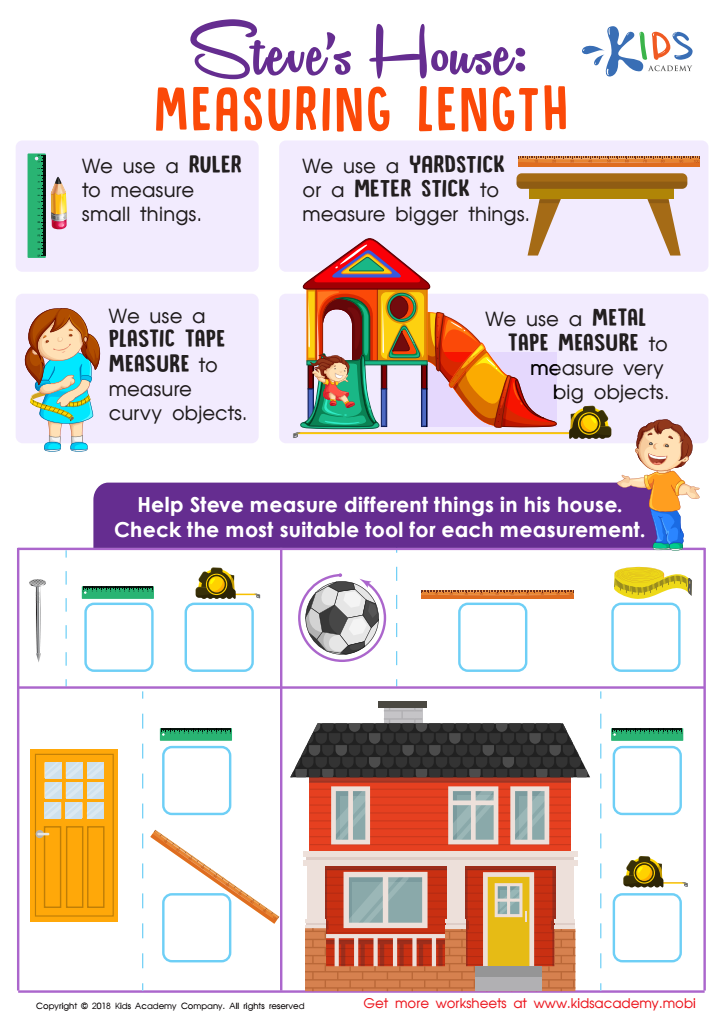

Steve's House: Measuring Length Worksheet
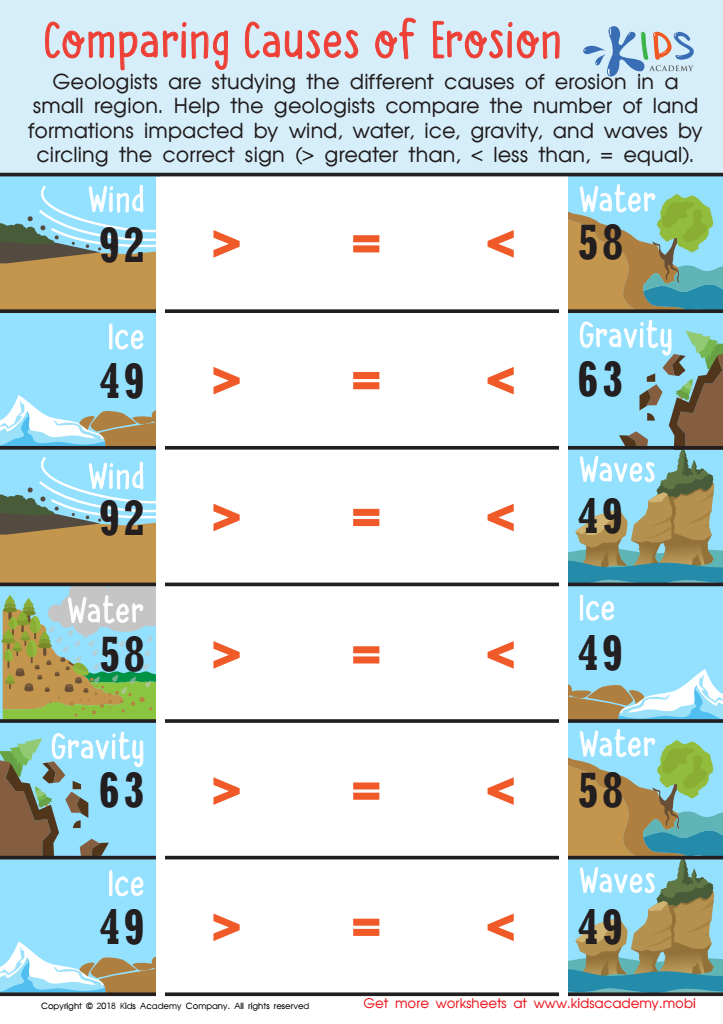

Comparing Causes of Erosion Worksheet
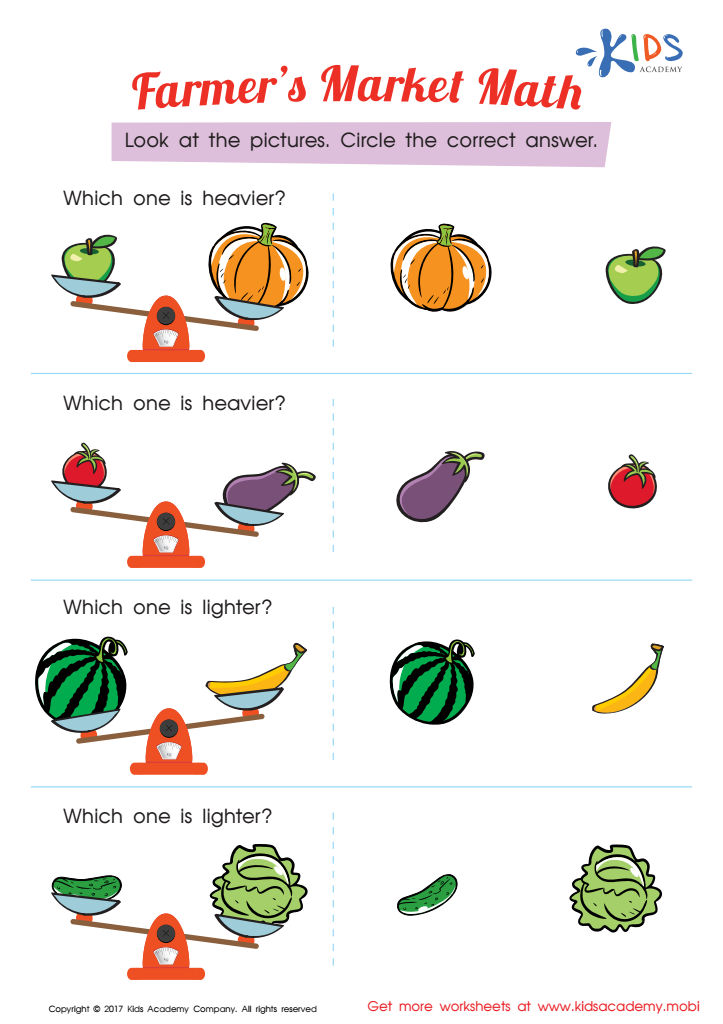

Which One Is Heavier Worksheet


Light and Sound: Assessment 2 Worksheet
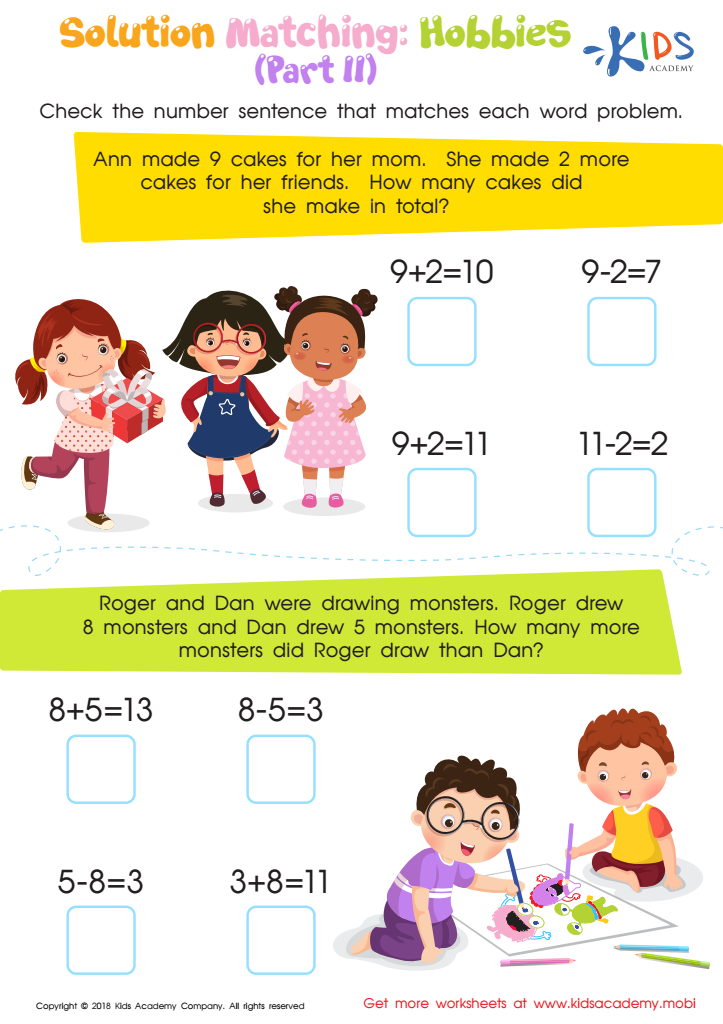

Solution Matching: Hobbies. Part 2 Worksheet
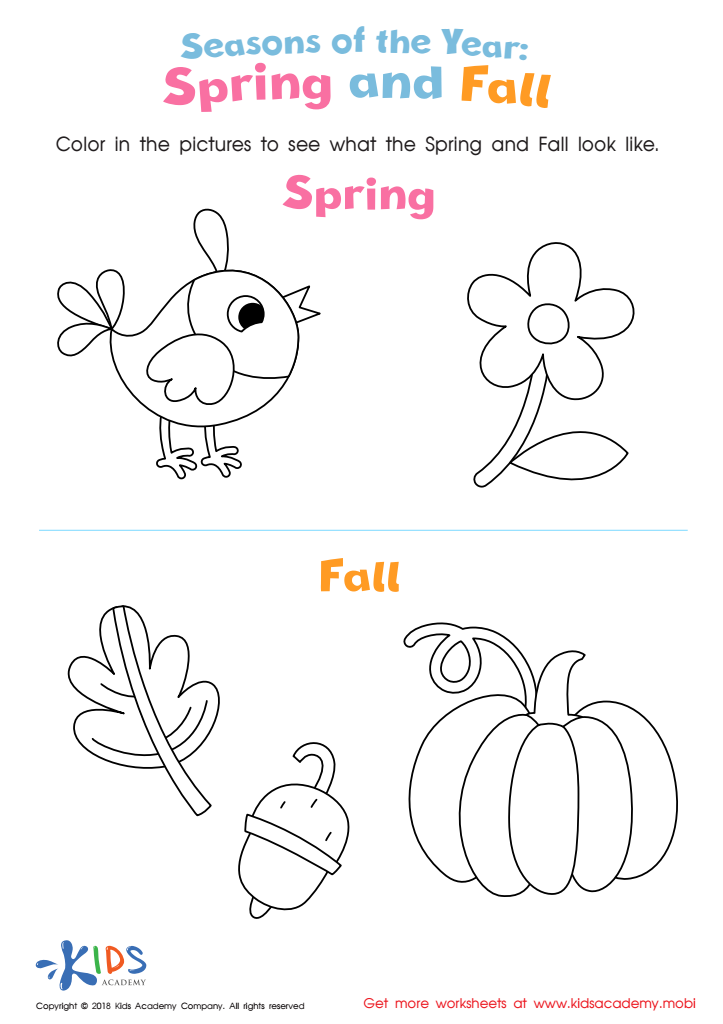

Spring and Fall Worksheet
Developing observation skills in children aged 3-9 is crucial for their overall growth and learning. Observational skills are foundational for academic success and personal development. For one, these skills enhance a child’s ability to notice details in their environment, which is essential for learning in subjects such as science, math, and reading. For example, observing patterns, colors, and shapes can help children understand mathematical concepts and boost their problem-solving abilities.
Beyond academics, strong observation skills aid social development. By closely observing interactions around them, children learn social cues, such as facial expressions and body language, which are critical for building empathy, communication skills, and effective relationships. This understanding promotes emotional intelligence, helping children manage their emotions and interact more positively with peers.
Moreover, observation fosters curiosity and a love for learning. When children are encouraged to be attentive, they become more curious, ask questions, and seek to understand the world around them, enhancing their natural inquisitiveness. This inquisitiveness is a key driver for lifelong learning and adaptability.
In summary, well-developed observational skills are fundamental for academic achievement, social competence, emotional intelligence, and nurturing an intrinsic curiosity, making them a valuable focus for both parents and teachers.
 Assign to My Students
Assign to My Students

